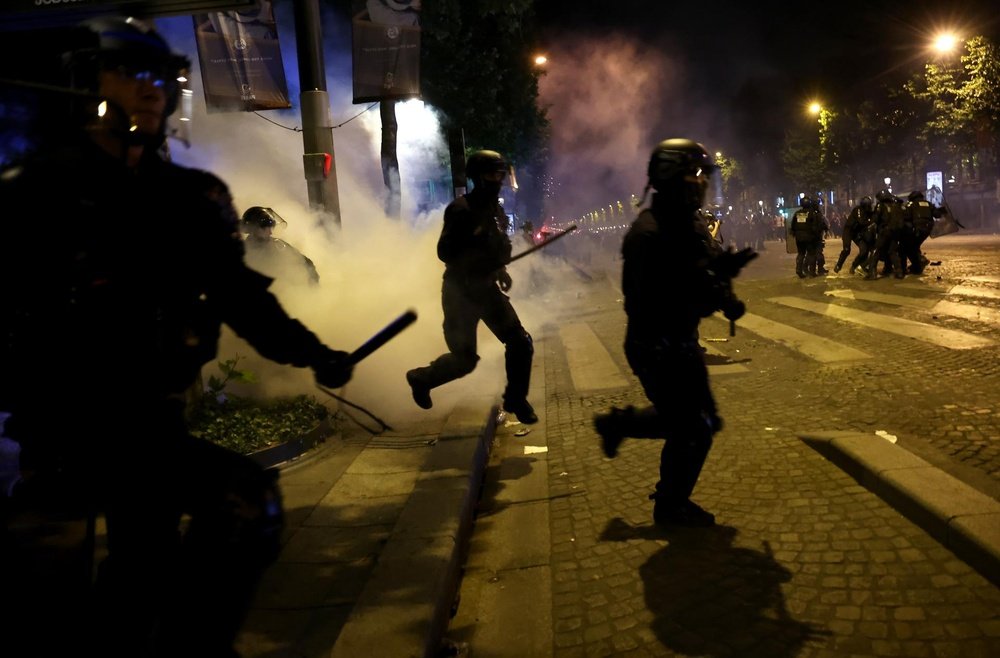PSG Champions League riots: eight sentenced to prison


Eight people were sentenced on Tuesday in Paris to prison sentences with immediate jail sentences for their part in the riots that took place from Saturday night to Sunday during the celebrations of PSG's victory in the Champions League final.
The Paris prosecutor's office explained in a statement that up to Tuesday 24 people had already been tried under the immediate appearance procedure, accused of attacking the forces of law and order (in many cases with pyrotechnic devices) or of vandalising shops.
For the courts as a whole, the sentences handed down range from three months exempt from serving (they will only be sent to prison in the event of a repeat offence) to 12 months with a final sentence that has led to their imprisonment.
In addition, 19 other suspects have been brought before a judge and charged with shoplifting, and various judicial proceedings have been carried out against more than 40 others.
In total, the Paris prosecutor's office indicated that it has so far dealt with 253 people arrested in connection with the riots that took place, particularly in the capital, following the PSG victory, including 15 minors.
After analysis by the magistrates, the cases were closed for 91 of the adult detainees and for two minors. The public prosecutor's office pointed out, in this respect, that "the rapid drafting of the files" concerning them "when the maintenance of order is a priority does not always make it possible to retain offences that had been envisaged at the outset".
Justice Minister Gerald Darmanin had expressed his dissatisfaction with the first convictions that had not resulted in prison sentences, which in his opinion were too light, and said that the law must evolve "radically" in order to toughen the penalties.
In particular, he wants to apply "a systematic minimum sentence" when guilt is recognised and that there should be "a minimum of three months of firm imprisonment", which would imply imprisonment ‘for any aggression against a representative of the state’

